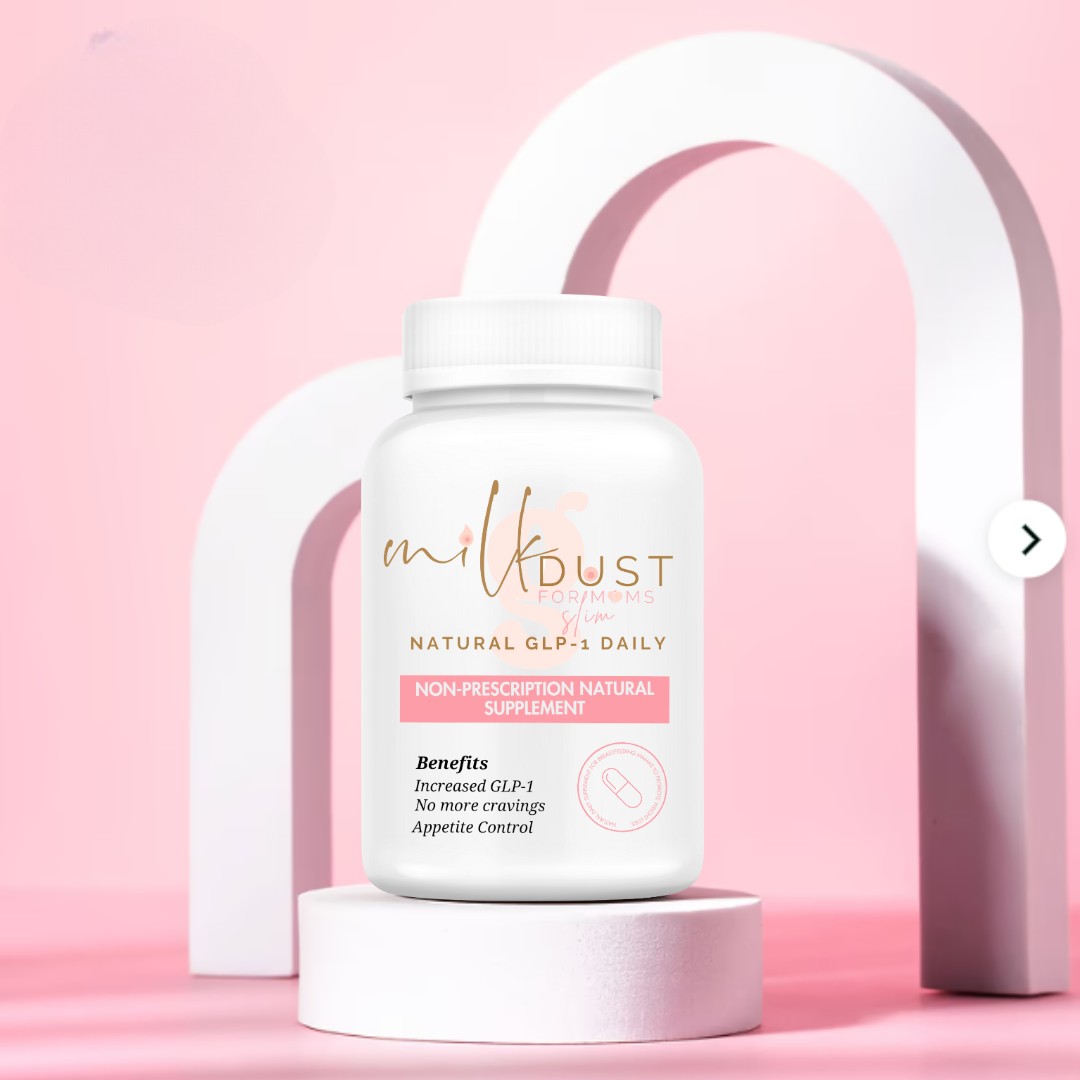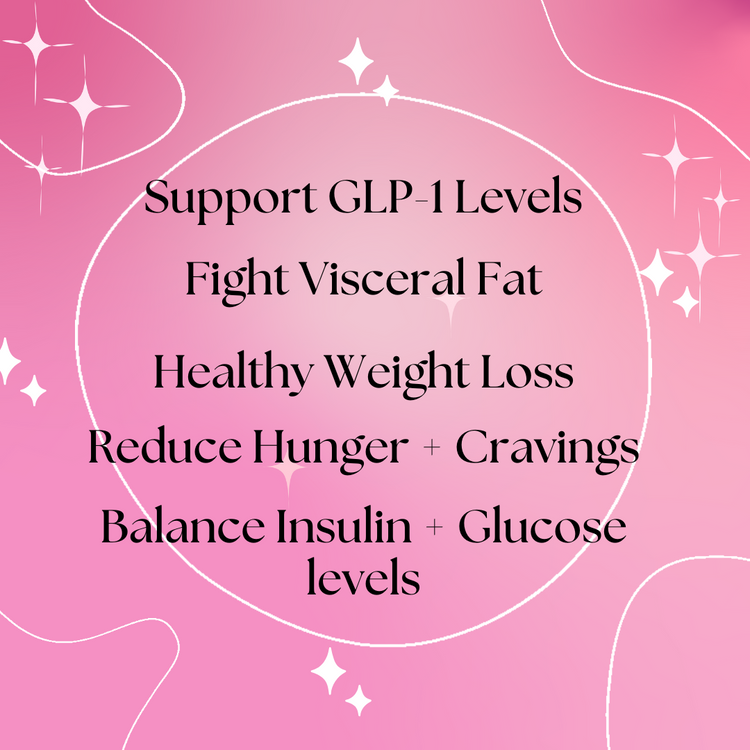As a Pre/Post Natal Fitness Specialist and certified Nutrition Coach, I have been helping both pregnant and postpartum mamas maintain a healthy weight, as well as lose weight while breastfeeding through nutrition. I specialize in nutrition during pregnancy and postpartum, and I am obsessed with maternal nutrition overall. I'm a mom of 4, and founder of Milk Dust. I created Milk Dust to offer optimal nutrition for pregnant and postpartum mamas. I assure you, I've taken the hard steps to ensure the quality of Milk Dust products that many companies don't take. I am a Pre/Post Natal Fitness Specialist and Certified Nutrition Coach through Preciscion Nutrition. I have been studying nutrition specifically for pregnancy and postpartum for a decade now, and you will see that the formulas for Milk Dust and Bump Dust are quite exceptional compared to others on the market. I made Bump Dust, the prenatal protein powder for my fourth pregnancy, and drank it all through my pregnancy. I then used Milk Dust for lactation and weight loss, and I know my products are quality and they work! I would never sell a product to mothers that I wouldn't use myself, and I know exactly how each batch is made.
I wanted to offer an in-depth post on protein shakes during pregnancy, so you can compare what products are on the market, and choose the one that fits you best! I also have some great information on protein shakes in general, and why protein is so important during pregnancy. If you want to skip below to my top picks for protein shakes, you can scroll down to get to the products and my overview of each one!
Are protein shakes safe for pregnancy?
Yes, it is generally safe to consume protein shakes while pregnant, but there are some important considerations to keep in mind:
-
Choose Safe Protein Sources: Opt for protein shakes made from safe and reputable sources of protein. Whey, casein, soy, and plant-based protein powders are generally considered safe. Be cautious with herbal or unregulated supplements, as they may not be safe during pregnancy.
-
Read Labels: Carefully read the labels of commercial protein powders to ensure they do not contain any ingredients that are unsafe during pregnancy, such as excessive caffeine or artificial additives.
-
Avoid Raw Eggs: Some homemade protein shake recipes call for raw eggs, which can carry the risk of salmonella infection. It's best to avoid raw eggs during pregnancy. You can use pasteurized eggs or egg substitutes in your shakes instead.
-
Stay Hydrated: Protein shakes can be dehydrating, so be sure to drink plenty of water throughout the day to stay hydrated.
-
Balanced Diet: While protein shakes can be a convenient way to increase your protein intake, they should not be used as a substitute for a balanced diet. Pregnant women need a wide range of nutrients, so be sure to include a variety of foods in your diet.
-
Consult Your Healthcare Provider: Before adding protein shakes or supplements to your diet during pregnancy, it's advisable to consult with your healthcare provider or a registered dietitian. They can provide personalized guidance based on your specific nutritional needs and any medical conditions you may have.
-
Gestational Diabetes: If you have gestational diabetes, you may need to monitor your carbohydrate intake, including those from protein shakes. Work closely with your healthcare provider and dietitian to manage your blood sugar levels.
Remember that it's essential to maintain a balanced and nutritious diet during pregnancy to support the growth and development of your baby. Getting as much protein as necessary is important to baby's growth and development, as well as your health. Protein supplements like protein shakes and protein powders are a great way to get in all the essential amino acids for mama and baby.
Protein shakes can be a convenient way to increase protein intake, especially if you have dietary restrictions or food aversions, but they should be part of a well-rounded and diverse diet that includes a variety of foods rich in essential nutrients.
Benefits of protein during pregnancy:
Protein is an essential nutrient during pregnancy, and it plays a crucial role in supporting the health and development of both the mother and the growing fetus. Here are some of the benefits of protein during pregnancy:
-
Supports Fetal Growth: Protein is necessary for the development and growth of the baby's tissues, organs, and overall body structure. It's a fundamental building block for the fetus.
-
Placental Health: Adequate protein intake helps maintain the health and function of the placenta, which is responsible for providing oxygen and nutrients to the fetus and removing waste products.
-
Amniotic Fluid Production: Protein is essential for the production of amniotic fluid, the fluid that surrounds and protects the baby inside the womb.
-
Cell Growth and Repair: Protein is required for the formation and repair of maternal and fetal cells, including blood cells, muscle cells, and skin cells.
-
Immune Function: Protein plays a role in strengthening the immune system, which is important during pregnancy to help protect both the mother and the baby from infections and illnesses.
-
Blood Volume: During pregnancy, blood volume increases to support the needs of the growing fetus. Protein is necessary for the production of hemoglobin, the molecule that carries oxygen in the blood.
-
Prevention of Pre-eclampsia: Adequate protein intake may help reduce the risk of developing pre-eclampsia, a serious condition that can affect blood pressure and organ function during pregnancy.
-
Muscle and Tissue Health: Protein supports the health of maternal muscles and tissues, helping to accommodate the changes that occur in the body during pregnancy.
-
Satiety and Blood Sugar Control: Protein-rich foods can help regulate blood sugar levels and promote a feeling of fullness, which can be beneficial for managing weight gain during pregnancy.
-
Reduced Risk of Gestational Diabetes: Adequate protein intake, especially from lean sources, may help reduce the risk of developing gestational diabetes.
-
Postpartum Recovery: Having sufficient protein during pregnancy can contribute to a faster recovery after childbirth, as it supports tissue repair and healing.
-
Breast Milk Production: Protein is essential for producing breast milk, which is the primary source of nutrition for the baby after birth.
It's important for pregnant women to ensure they are getting enough protein through a balanced diet that includes a variety of protein sources. Lean meats, poultry, fish, eggs, dairy products, legumes, nuts, and seeds are all excellent sources of protein. The specific protein needs during pregnancy can vary depending on factors such as age, activity level, and whether the pregnancy is carrying one or more fetuses. Your healthcare provider or a registered dietitian can provide personalized guidance on your protein intake during pregnancy.
How protein shakes help with weight management and cravings during pregnancy:
Protein shakes can be a helpful tool for weight loss after pregnancy, and weight management during pregnancy. I loved getting in my grams of protein with protein shakes during pregnancy because they tasted amazing, helped with my morning sickness (or all day sickness!), and was a great way for me to get a fast meal in. Protein shakes were also a great tool for me to keep my weight gain down during pregnancy. Here are some ways in which protein shakes can help a pregnant woman manage weight gain and stay healthy:
-
Satiety: Protein is known to be more filling than carbohydrates or fats. Consuming a protein shake can help you feel full and satisfied, reducing the likelihood of overeating or snacking on unhealthy foods between meals.
-
Calorie Control: Protein shakes, particularly when prepared with low-calorie ingredients, can be a convenient way to control your calorie intake. They can serve as a meal replacement or a snack, allowing you to manage portion sizes more easily.
-
Muscle Preservation: When you are trying to lose weight, you want to lose fat, not muscle. Adequate protein intake can help preserve muscle mass while promoting fat loss. This is especially important for maintaining a healthy metabolism.
-
Metabolism: Protein has a higher thermic effect of food (TEF) than carbohydrates or fats, meaning your body burns more calories digesting protein. This can slightly boost your metabolism.
-
Blood Sugar Control: Protein can help stabilize blood sugar levels, preventing sharp spikes and crashes in energy, which can reduce cravings for high-sugar, high-calorie foods.
-
Convenience: Protein shakes can be a quick and convenient option for busy individuals. They can be prepared and consumed on the go, making it easier to stick to a weight loss plan.
However, it's essential to use protein shakes as part of a comprehensive weight loss strategy and not as a sole solution. Here are some important considerations:
-
Nutrient Balance: While protein is important, it's crucial to maintain a balanced diet that includes a variety of foods rich in essential nutrients, such as fruits, vegetables, whole grains, and healthy fats.
-
Real Food Preference: Whole foods are generally preferable to processed shakes. They provide a broader range of nutrients and can help you establish long-term healthy eating habits.
-
Calorie Awareness: Pay attention to the calorie content of your protein shakes. If you consume more calories than you burn, you won't lose weight. Be mindful of portion sizes.
-
Quality Ingredients: Choose high-quality protein powders without excessive added sugars or artificial additives.
-
Exercise: Combining protein shakes with regular physical activity can enhance weight loss results and help you achieve and maintain a healthy weight.
-
Consultation: Before making significant dietary changes or starting a weight loss plan that includes protein shakes, it's advisable to consult with a healthcare provider or registered dietitian, especially if you have any underlying health conditions.
Best protein shakes and best protein powder for pregnancy:
BUMP DUST PRENATAL PROTEIN POWDER AND VITAMIN:











